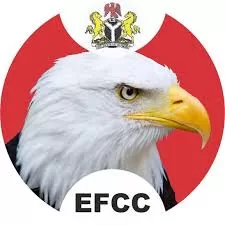
WHY WE WITHHELD IDENTITIES OF OWNERS OF SEIZED 753 UNITS DUPLEXES IN ABUJA – EFCC
The Economic and Financial Crimes Commission (EFCC) has responded to the criticisms following its record-breaking asset recovery of a 150,500-square-meter estate in Abuja, which includes 753 duplexes and other apartments.
The estate, located in Lokogoma District, was forfeited to the Federal Government after a successful court ruling on December 2, 2024.
Clarifying the legal process, the EFCC in a statement issued on December 3, 2024, emphasized that the forfeiture was carried out in line with Nigerian law, specifically under Section 17 of the Advance Fee Fraud and Other Fraud Related Offences Act.
The commission also addressed the public comments from activist Omowole Sowore, who criticized the asset recovery effort. The EFCC called the denigration of its efforts “unacceptable” and “grossly un-charitable,” urging critics to focus on the systemic issues that allowed such corrupt activities to occur in the first place.
“The expectation of the EFCC from citizens is a patriotic appreciation of its efforts in securing such a landmark forfeiture,” they said.
What they said
The statement pointed out that the forfeiture proceeding was a civil action involving the estate, rather than targeting an individual directly.
“The allegation of a cover-up of the identity of the promoters of the Estate stands logic on the head in the sense that the proceedings for the forfeiture of the Estate were in line with Section 17 of the Advance Fee Fraud Act which is a civil proceeding that allows for action-in-rem rather than action-in-personam.
The latter allows legal actions against a property and not an individual, especially in a situation of unclaimed property.
This Act allows you to take up a forfeiture proceeding against a chattel who is not a juristic person. This is exactly what the Commission did in respect of the Estate.
The proceedings that yielded the final forfeiture of the Estate were products of actionable intelligence available to the Commission. The company flagged by our investigations denied ownership of the Estate following publications made in leading national newspapers.
On the basis of this, the Commission approached the court for an order of final forfeiture which Justice Jude Onwuegbuzie of the Federal Capital Territory, FCT, High Court granted on Monday, December 2, 2024,” the EFCC stated, defending its actions.
The EFCC further emphasized the importance of addressing systemic lapses that contribute to corruption.
“It is shocking that the activist is not concerned about the systemic lassitude and unhelpful permissiveness that allowed such a monstrous corrupt act in the first instance.
Nigerians should gear up more against lapses and loopholes in our system that continue to make the nation vulnerable to corrupt tendencies,” the statement said.
Ongoing investigation
- While the asset recovery process has concluded, the EFCC confirmed that the criminal investigation into the matter is still ongoing.
The commission stressed that it could not publicly name individuals linked to the estate without clear documentation of their involvement. - “It will be unprofessional of the EFCC to go to town by mentioning names of individuals whose identities were not directly linked to any title document of the properties,” the statement explained.
- The EFCC reaffirmed its commitment to a “no-sacred-cow” approach in all its investigations.
Backstory
- Nairametrics previously reported that the EFCC achieved its largest asset recovery since its inception in 2003. The recovery involved the final forfeiture of a 150,500-square-meter estate in Abuja, containing 753 duplexes.
- Justice Jude Onwuegbuzie of the FCT High Court ruled on December 2, 2024, that the property, linked to a former high-ranking official, was “reasonably suspected to have been acquired with proceeds of unlawful activities.”
- The ruling relied on Section 17 of the Advance Fee Fraud Act, aligning with the EFCC’s mandate to curb corruption.
 Premium News
Premium News